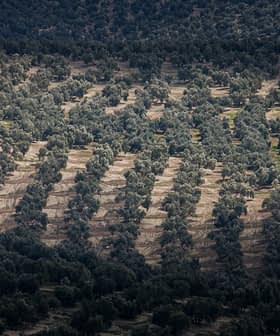By Daniel Williams
Olive Oil Times Contributor | Reporting from Barcelona
The 2010/2011 crop year will begin with the lowest prices in recent years and many Spanish farmers, in the face of high harvesting costs, are considering the possibility of blocking the harvest due to the unprofitability of the process.
During an opportunistic era when business analysts feel that olive farmers should be making stronger efforts to invest, olive growers find themselves faced with a market profitability that does not cover their own costs of production. As the current figures stand, many Spanish farmers have calculated that collecting the harvest would cost them more than what they would potentially gain at a later
time after withholding their products from the market.

- Rafael Civantos

Experts already see the current situation as highly problematic. Taking into account the minimum price per kilo that can be considered as profitable (2.49 euros/kilo) against the prices and production of the 2009/2010 season – 567,691 tons with average selling price of 1.81 euros per kilo- analysts calculate that olive growers from Jaén have already lost some 386 million euros.[1]
Against this pessimistic backdrop, thousands of olive growers are questioning whether it is worth initiating next year’s olive crop due to the inevitable costs of wages, fuel and machinery. Given the precarious situation of the olive sector and the situation ahead, COAG-Jaén, one of Spain’s largest agrarian unions, warns that it will take action if no price changes are initiated by an intervention from the central government’s Ministry of Environment, Rural and Marine Affairs.
COAG-Jaén has also raised the issue of ensuring a stricter implementation of punitive measures against some of Spain’s biggest bottling companies that have been accused of fraudulent labeling and a host of other alleged abuses.
Economic analysts see the pricing crisis as having an adverse affect on job creation at a time where Spain’s unemployment rate has reached over 20% of the general population.[2] The number of people working in the olive oil sector has already dropped in response to falling prices. According to a 2010 report from the Foundation of Rural
Studies, a project associated with the Union of Small Farmers and  Ranchers, olive oil sector employees diminished 4% last year to some 786,050 employees in 2009.[3] Even more are expected to be out of work if the situation continues.
Ranchers, olive oil sector employees diminished 4% last year to some 786,050 employees in 2009.[3] Even more are expected to be out of work if the situation continues.
The secretary general of COAG-Jaén, Rafael Civantos explains: “The seven million in wages accounted for in the last campaign will definitively diminish this year because many farmers are planning to leave part of their harvest and not collect it, especially
those that are situated in mountainous areas and other inaccessible locations.“1
In response, COAG-Jaén has issued a public warning asking the central government to raise olive prices by initiating another warehousing campaign or through other interventionist measures. “We are fighting for everyone and we are not ruling out the blocking of the start of the new campaign until measures are taken to solve the critical situation in the olive oil sector in Jaén,“said secretary general Rafael Civantos.1
In response to these warnings, the minister of the of Environment, Rural and Marine Affairs, Elena Espinosa, has stated that the Spanish government will not solicit a private warehousing campaign from the European Union until certain, specified conditions are met. She did insist, however, that the Spanish government will always initiate this effort, “when the situation meets the necessary conditions and rules of the game.”[4]
1 “España: bloquearán el inicio de campaña si no se toman medidas anti crisis”
2 Instituto Nacional de Estadística
3 “Agricultura Familiar en España 2010: Informe Socioeconómico” (PDF)
4 “España: Medio Rural reitera que no solicitará el almacenamiento de aceite”








